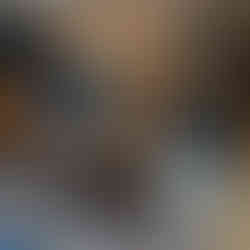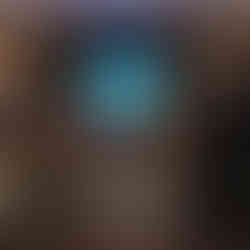Interview with Jimmy LaValle aka The Album Leaf
- Oct 13, 2021
- 5 min read
Had the pleasure of interviewing producer, song-writer and synth enthusiast Jimmy Lavalle, aka the Album Leaf.

Synth History: How do you approach scoring a film versus recording a personal album?
Jimmy: When scoring a film, you’re playing a supportive role - working with a director to help tell their story. There is picture, a story, tone and characters that really shape the direction of the score. When creating my own personal album, I am free to express and create what inspires me in tat moment. There is a strong connection between the two mediums and you could argue that creating an album could use all the same narratives mentioned above, but I think the major difference is I'm not the director of the film but the director of my albums. I tend to experiment much more with tone, space, atmosphere and melodies when making my own music.
With film, all of those elements are there and I do experiment with sound design, but in the end, the real difference is a film score is a collaboration with both the director and the picture. You’re supporting that vision.
Synth History: Do you think it’s important to keep improvisations and imperfections in a world of MIDI quantization and order?
Jimmy: I absolutely do. I keep my performances in tact and do mostly only rhythmic quantization, I still focus on getting a good take. The power of MIDI is you can get a good performance and send those performances to hardware. That is typically my workflow. I am 99% hardware in my recordings but like to track via MIDI channels in Ableton. This allows me to focus on sound manipulating after the fact. I can track my ideas, then focus on filters, ADSR, delay trails, Mod Matrix’s, LFO’s, etc. when printing my final takes. It's important to me to maintain my feel and groove. There are MIDI tools to help with humanizing the grid, but I find those can fall under order as you said. One of my favorite new features I've discovered is MIDI capture in Ableton. It may exist in other DAW’s but I've recently discovered it and I use it frequently to capture an idea. It will grab the BPM I was playing at, and it does not quantize at all. I really enjoy this tool.
Synth History: What’s an important recording technique you think most people don’t know about?
Jimmy: I believe techniques learned are best unlearned. I'm not sure if that’ll make sense, but what I really mean is, rules are meant to be broken. I never went to school or studied production in any capacity. I learned things by observing mix engineers and studio engineers. But ultimately, I think there is no wrong approach to recording. As long as it sounds good to you. You can have a ton of hardware synths, outboard gear, fx units etc... All of that doesn’t matter, it's what you do with it.
Synth History: What song throughout history has had the biggest impact on your life?
Jimmy: I'm not sure if there is one singular song but there are artists that have had a significant impact on my life that have helped guide me to the sonic choices I use in my music. Growing up, I was a huge fan of the Beatles. I loved all things John Lennon. Then I heard Prince, maybe When Doves Cry really stood out to me. After the amazing guitar solo intro, the rest of the song is just drums, synth and voice. And it sounds huge. I think I dug into the liner notes of Prince records and discovered he played everything. That definitely spoke to me knowing that I played all the standard instruments that make up a band. I felt like a light bulb went off not knowing that it was possible to create a full recording by yourself. Once I got into my later teens, I started to discover a world of underground and earlier influential recordings.
Discovering Brain Eno has probably had the biggest impact on me, with Aphex Twin, Kraftwerk and Can falling closely behind. The First record I heard of Brian Eno's was Before and After Science. Now it's mostly a rock psych record, but the song Julie With and By This River really stood out to me. Then discovering Phil Collins played drums on that and a lot of his records also blew my mind... but thats another story!
Anyhow, it lead me down the catalog of Brian Eno discovering how he blended rock with ambience, drum machines, synths and just was making music that was unique and original for its era. The 70s were full of influential, new genres but I feel like Brian Eno set the stage for ambient music for decades to come and it's still going strong. I gravitated towards melody, particularly melancholic or just emotional melodies. The blend that Aphex Twin has with absolutely stunning chord progressions and beautiful melodies over some of the most intense, ahead of its time drum programming really influenced me and I immediately said, I wanna do that. But I had no clue how to get into sequencing, MIDI, electronics etc.. in the late 90’s so I took that approach in my drumming, which brings me to Can. Jaki Liebezeit hands down is my biggest drumming influence. I practiced Can beats as much as I could and happened to be playing drums for a band called GoGoGo Airheart at the time so I could really hone in on my drumming. Moving into recording my records, my drumming was a direct influence of Jaki’s.
Synth History: If you could attend one concert again, which would it be?
Jimmy: I had tickets to see Kraftwerk before the pandemic hit. It was obviously cancelled. It was a birthday present to myself. They’re definitely a bucket list band for me. They’ve influenced me endlessly and I feel I owe a lot to them. Would love to see them live. Even if its boring! Just want to listen to them play. Florian also passed in April after the lockdown happened. My tickets were in June. Who knows what would’ve happened. And who knows what will happen in the future.
Synth History: What are your top three synths and why?
Ever since I got my Peak from Novation in 2017, it has been my number one synth. The sound design ease is incredible. Im easily able to create new sounds in seconds and the built in FX are really incredible to me. You can get really deep really easily by diving into the menus, but really, it's my number one.
Number two would be my DFAM by Moog. I'm easily able to craft unique drum sounds and patterns, sample them into a simpler instrument in Ableton and re-sequence them to the song I'm working on. The tones I create feel unique and fresh. There is a ton of drum libraries out there and thats not a bad thing - but that makes me appreciate the sounds I can make with the DFAM.
Number three is a toss up but I'm gonna go with my Make Noise 0-Coast. Again, a very unique synth that is semi-modular, fully analog and the sounds you make are unique to you. I’m a fan of presets as a point to jump from and I've used presets on my records, but there is something to be said about creating your own patch, feeling like it's yours and no-one has ever heard it. With so many synths in the world, its tough to choose three as your favorites, but these three all give you the ability to create your own sounds. And I think thats fun!
Synth History Exclusive.











